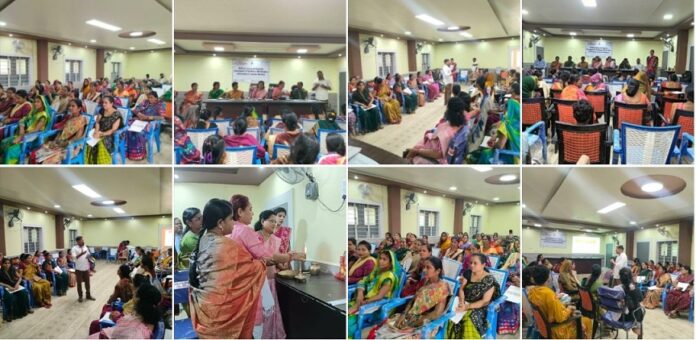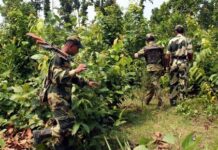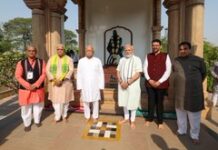
By Chandan Kumar Sahu
BERHAMPUR: In a ground breaking initiative, Youth for Social Development, in collaboration with UNICEF, conducted a one-day capacity development training in Kotharsing Panchayat. The focus of the program was to empower women representatives and Standing Committee Members with the knowledge and skills required for creating Child and Women Friendly Panchayats.
The training, attended by women representatives from 9 Panchayats, along with members of Standing Committees, Ward Members, Naib Sarpanch, Samiti members, and Sarpanch, witnessed a remarkable turnout. Representatives from Kanishi, Randha, Chikarada, Vishwanathapur, Chandpur Golanthara, Kotharsingh, and Mantridi Gram Panchayats actively participated in the event.
The Chief Guest, Ms. Rajswari Lora, District Council Vice President of Ganjam, along with the UNICEF State Coordinator, Ms. Gitanjali, and Mr. Rajendra Kumar Behera, PEO, Kotharsing gram panchayat inaugurated the program. Ms. Lora encouraged women to play a pivotal role in local development and emphasized the need for their active involvement in decision-making processes.
Mr. Narendra Kumar Sahoo from Youth for Social Development addressed the participants, highlighting the importance of planning and implementing government initiatives with a focus on child and women-centric approaches. Ms. Swain shed light on the critical role of women representatives in Odisha, emphasizing the localization of sustainable development plans, particularly in themes related to child and women-friendly initiatives.
The training camp, led by the Project Coordinator Narendra Kumar Sahu, Block Coordinator Sudeep Kumar Chakraborty, Mamali Panda, Gitanjali Panigarahi, and Biplab Kumar Behera, delved into crucial topics such as child rights, the status of women and children in Ganjam district, key responsibilities of women representatives at the local level, and the participation of women in Panchayat development work. Discussions also encompassed various government schemes for child protection, sustainable development plans, child-friendly Panchayat indicators, and the role of Panchayats in ensuring the four rights of children—Survival, Safety, Development, and Participation.
The interactive session actively engaged participants, ensuring a comprehensive understanding of the challenges faced by women and children in Panchayats. The program concluded successfully, marking a significant step towards creating Child and Women Friendly Panchayats and empowering women representatives in local governance.


























